
The Presbyterian Church (USA), abbreviated PCUSA, is a mainline Protestant denomination in the United States. It is the largest Presbyterian denomination in the country, known for its progressive stance on doctrine and its ordaining of women and members of the LGBT community as elders and ministers. The Presbyterian Church (USA) was established with the 1983 merger of the Presbyterian Church in the United States, whose churches were located in the Southern and border states, with the United Presbyterian Church in the United States of America, whose congregations could be found in every state.
Union commonly refers to:
HJ International Graduate School for Peace and Public Leadership formerly known as Unification Theological Seminary (UTS) from its founding in 1975 until July 2023 is a private Unification Church-affiliated graduate seminary headquartered in Midtown Manhattan, New York City, New York. The seminary was granted an absolute charter from the State of New York in January 1984 and received accreditation from the Middle States Commission on Higher Education in November 1996.
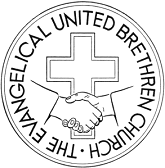
The Evangelical United Brethren Church (EUB) was a North American Protestant denomination from 1946 to 1968 with Arminian theology, roots in the Mennonite and German Reformed communities, and close ties to Methodism. It was formed by the merger of a majority of the congregations of the Evangelical Church founded by Jacob Albright and the Church of the United Brethren in Christ. The United Brethren and the Evangelical Association had considered merging off and on since the early 19th century because of their common emphasis on holiness and evangelism and their common German heritage.

The Convention of Philippine Baptist Churches (CPBC) is a Baptist Christian denomination in the Philippines. It is affiliated with the Baptist World Alliance and is headquartered in Jaro, Iloilo City. CPBC was founded in 1900 as the oldest and first organized union of Baptist churches in the Philippines. This occurred after the country opened to Protestant American missions in 1898, following Spain's transfer of the Philippine islands to the United States.

Union Presbyterian Seminary is a Presbyterian seminary in Richmond, Virginia, and Charlotte, North Carolina, offering graduate theological education in multiple modalities: in-person, hybrid, and online.
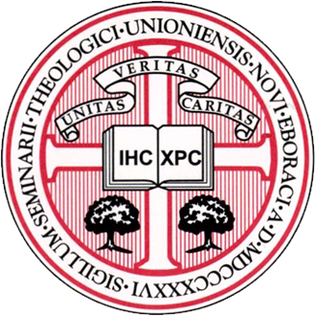
Union Theological Seminary in the City of New York (UTS) is a private ecumenical Christian liberal seminary in Morningside Heights, Manhattan, affiliated with Columbia University. Columbia University lists UTS among its affiliate schools, alongside with Barnard College and Teachers College. Since 1928, the seminary has served as Columbia's constituent faculty of theology. In 1964, UTS also established an affiliation with the neighboring Jewish Theological Seminary of America. Despite its affiliation with Columbia University, UTS is an independent institution with its own administration and Board of Trustees. UTS confers the following degrees: Master of Divinity (MDiv), Master of Divinity & Social Work dual degree (MDSW), Master of Arts in religion (MAR), Master of Arts in Social Justice (MASJ), Master of Sacred Theology (STM), Doctor of Ministry (DMin), and Doctor of Philosophy (PhD).
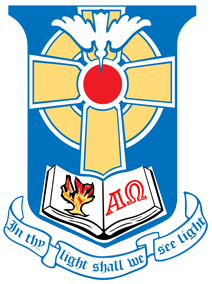
The Associate Reformed Presbyterian Church (ARPC) is a theologically conservative denomination in North America. The ARPC was formed by the merger of the Associate Presbytery (seceder) with the Reformed Presbytery (covenanter) in 1782. It is one of the oldest conservative denominations in the United States.

Virginia Theological Seminary (VTS), formally called the Protestant Episcopal Theological Seminary in Virginia, located at 3737 Seminary Road in Alexandria, Virginia is the largest and second oldest accredited Episcopal seminary in the United States.
The Vancouver School of Theology is a ecumenical divinity school located on the campus of and affiliated with the University of British Columbia. VST is called to educate and form thoughtful, engaged and generous Christian leaders.

The fundamentalist–modernist controversy is a major schism that originated in the 1920s and 1930s within the Presbyterian Church in the United States of America. At issue were foundational disputes about the role of Christianity; the authority of the Bible; and the death, resurrection, and atoning sacrifice of Jesus Christ. Two broad factions within Protestantism emerged: fundamentalists, who insisted upon the timeless validity of each doctrine of Christian orthodoxy; and modernists, who advocated a conscious adaptation of the Christian faith in response to the new scientific discoveries and moral pressures of the age. At first, the schism was limited to Reformed churches and centered around the Princeton Theological Seminary, whose fundamentalist faculty members founded Westminster Theological Seminary when Princeton went in a liberal direction. However, it soon spread, affecting nearly every Protestant denomination in the United States. Denominations that were not initially affected, such as the Lutheran churches, eventually were embroiled in the controversy, leading to a schism in the United States.

Cheeloo University was a university in China, established by Hunter Corbett American Presbyterian, and other English Baptist, Anglican, and Canadian Presbyterian mission agencies in early 1900 in China.

The United Church of Christ in the Philippines is a Christian denomination in the Philippines. Established in its present form in Malate, Manila, it resulted from the merger of the Evangelical Church of the Philippines, the Philippine Methodist Church, the Disciples of Christ, the United Evangelical Church and several independent congregations.
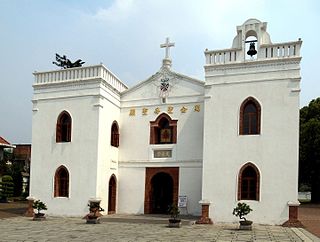
Christianity in Taiwan constituted 3.9% of the population, according to the census of 2005; Christians on the island included approximately 600,000 Protestants, 300,000 Catholics and a small number of members of the Church of Jesus Christ of Latter-day Saints.
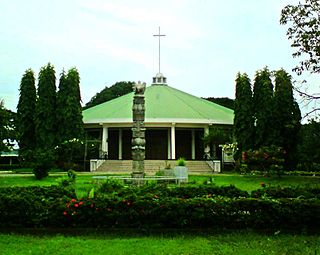
Union Theological Seminary is the oldest Protestant seminary in the Philippines.
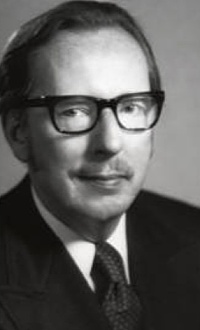
Ernest T. Campbell was an American Presbyterian clergyman, theologian, and writer. He is most remembered as senior minister of New York City's prominent Riverside Church from 1968 to 1976. A native of New York City, Campbell previously served as minister at churches in Pennsylvania and the First Presbyterian Church of Ann Arbor, Michigan. After resigning from Riverside Church, he lectured at various seminaries including his alma mater, Princeton Theological Seminary, and was Professor of Homiletics at Garrett–Evangelical Theological Seminary between 1982 and 1989.












